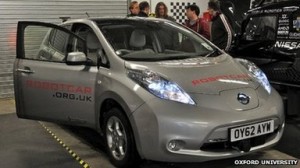In this October 2013 article from CBC Business News, we hear of the rise of small business. Statistics given in the article state that sixty-two percent of small business owners believe their business will flourish back even more in 2014 and fifty-five percent believe that their business will continue to grow. What we are seeing here is the rising popularity of small businesses; it is increasingly common to shop at small local, specialized stores. These businesses rely on dedicated local customer bases with the offer of valid points of difference. The points of difference often are based on fulfilling a particular specialized need, such as smaller teashops or boutiques, which can offer a unique product. They also boast the benefit of revamping local economies, consumers feel as if they are helping out the community. There is however a chance of chain stores taking away business from the smaller stores as they will be able to offer cheaper products due to buyer’s preference, or the fact that they possess enough money to be able to run their competition out. In recent years however local customer bases, generally relying on social media, have been able to keep the stores in business and help them flourish.



